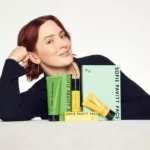
Are you confused about how to care for your hair to keep it healthy and strong? You are not alone! There are so many hair care products in the market, and all promise great results, but if you don’t follow basic hair care rules, even the best products won’t give you the desired result. Before getting into particular hair care treatments to revive your locks, it’s critical to understand your hair type first.
Natural hair comes in many forms – straight or wavy, thick or fine, oily or dry – so understanding your hair’s unique traits can help you select the best products and care regimen. For example, straight hair is prone to oiliness and requires oil control products, curly hair needs more moisture to prevent dryness and frizz, and volumizing products can help prevent fine hair from seeming flat.
However, following certain rules can keep all these types of strong and healthy hair, so let’s look at the most useful tips we have for you.
Tip 1: Maintain Scalp Health
A healthy scalp is essential for strong hair, and neglecting your scalp health can create dandruff, cause hair loss, and get you in all sorts of trouble! Keep your scalp hydrated with oils such as tea tree or jojoba, and to eliminate dead skin cells and product buildup, scrub your scalp with exfoliating products.

Tip 2: Use Hair Masks
Deep conditioning methods such as hair masks add extra nutrients and provide moisture to strengthen your hair strands! You can use a good quality hair mask once a week or opt for natural ingredients such as coconut oil and honey mix to make a hair mask at home. When looking for a good hair mask at the market, find items that contain keratin, argan oil, or shea butter, which help to revive dull, damaged hair.
Tip 3: Know How to Wash Your Hair Properly
Washing your hair correctly is essential for keeping it healthy because overwashing or under washing can cause dryness and oil accumulation, which harms your hair. Just wash your hair two or three times each week unless your scalp gets too oily! Remember, to avoid removing your hair’s natural oils, use a sulfate-free shampoo and conditioner afterwards to moisturize and detangle your hair. Another helpful tip is to wash your hair with lukewarm water since hot water can create dryness and frizz.
Tip 4: Always Handle Wet Hair Gently
You should know that hair is at its most vulnerable state when it is damp, and rough handling can cause breakage, split ends, or hair fall! Instead, carefully squeeze out any extra water with a microfiber cloth and then detangle damp hair with a wide-tooth comb to reduce tugging or pulling.
Tip 5: Eat a Balanced Diet
Many people often ignore the importance of a balanced diet to keep your hair healthy! Hair is mostly composed of keratin, a protein found in eggs, fish, lean meats, and beans, so it is a great idea to include these items regularly in your diet. Eating a well-balanced diet rich in nutrients such as iron, zinc, and vitamins A, C, D, and E will also improve the strength and development of your hair. Another very important factor is to drink enough water since dehydration can cause lasting damage to your hair!
Tip 6: Don’t Overuse Heating Tools
We all know heating tools are incredibly effective in styling your hair, yet they are also awfully damaging when overused. Heating tools such as hair straighteners, curling irons, and blow dryers damage your hair, especially if you don’t use heat protectant sprays every time you use these tools! That is why all experts agree that heat styling should be reserved only for special occasions, not daily use.

Tip 7: Take Precaution to Protect Your Hair from Environmental Factors
Did you know that environmental factors such as sun exposure, air pollution, and extreme weather can cause serious hair damage? When spending lengthy periods outside, use UV-protective hair products or simply wear a hat; similarly, wear a scarf or cap in heavily polluted places to protect your hair. It is also best practice to use a leave-in conditioner to keep your hair from drying out in very cold weather, which helps preserve your hair’s natural hydration and strength.
Hair damage takes very little time, but keeping it healthy is long-term work! Neglecting hair care will not only cause hair breakage and fall but weaken your hair strength and cause scalp irritation. You should always focus on developing lasting habits and stick to a consistent hair care plan to have strong, healthy locks! Following the suggestions we mentioned above will help your hair’s health, but remember consistency is the biggest factor because hair growth and healing require time.
Discover the complete story with Leah on DSCENE Magazine.



